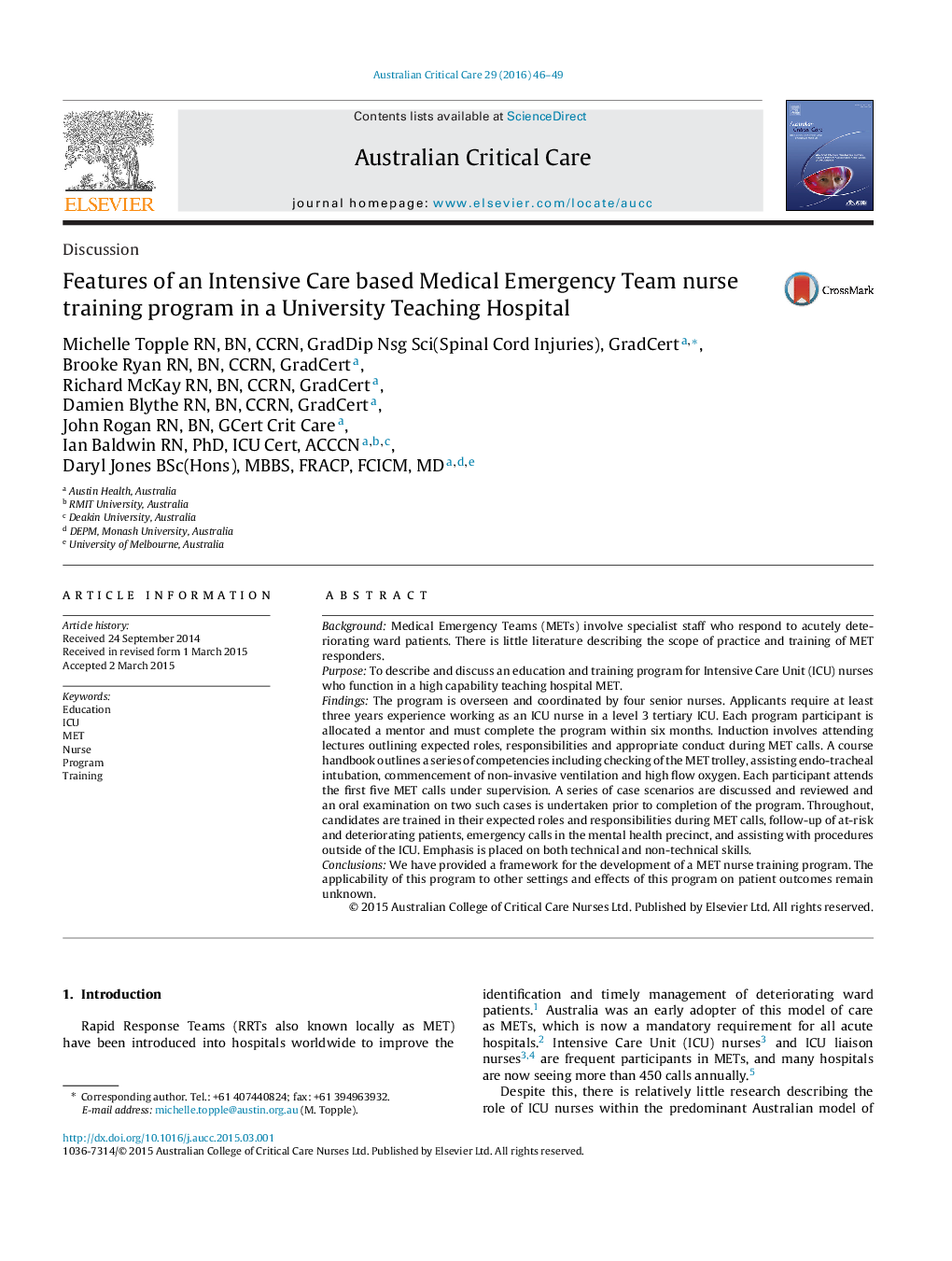| Article ID | Journal | Published Year | Pages | File Type |
|---|---|---|---|---|
| 2606387 | Australian Critical Care | 2016 | 4 Pages |
BackgroundMedical Emergency Teams (METs) involve specialist staff who respond to acutely deteriorating ward patients. There is little literature describing the scope of practice and training of MET responders.PurposeTo describe and discuss an education and training program for Intensive Care Unit (ICU) nurses who function in a high capability teaching hospital MET.FindingsThe program is overseen and coordinated by four senior nurses. Applicants require at least three years experience working as an ICU nurse in a level 3 tertiary ICU. Each program participant is allocated a mentor and must complete the program within six months. Induction involves attending lectures outlining expected roles, responsibilities and appropriate conduct during MET calls. A course handbook outlines a series of competencies including checking of the MET trolley, assisting endo-tracheal intubation, commencement of non-invasive ventilation and high flow oxygen. Each participant attends the first five MET calls under supervision. A series of case scenarios are discussed and reviewed and an oral examination on two such cases is undertaken prior to completion of the program. Throughout, candidates are trained in their expected roles and responsibilities during MET calls, follow-up of at-risk and deteriorating patients, emergency calls in the mental health precinct, and assisting with procedures outside of the ICU. Emphasis is placed on both technical and non-technical skills.ConclusionsWe have provided a framework for the development of a MET nurse training program. The applicability of this program to other settings and effects of this program on patient outcomes remain unknown.
